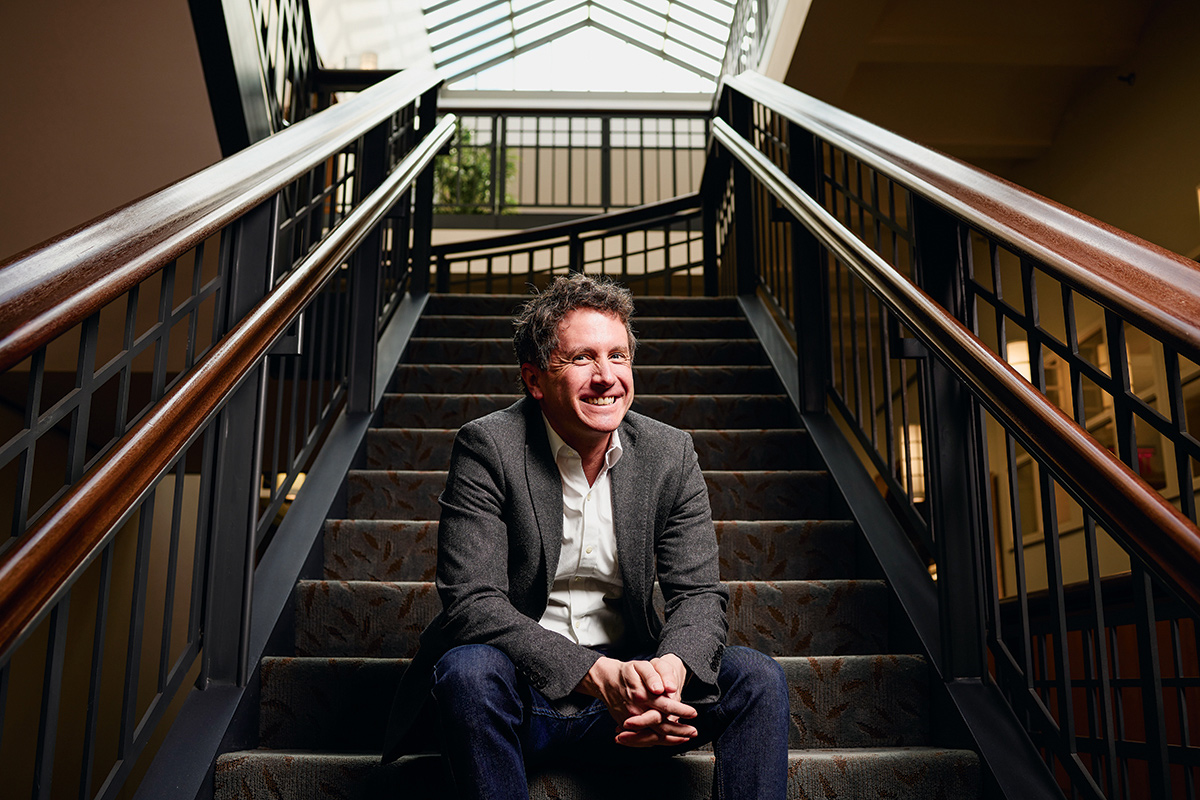lens
The Road Taken
Walt Hunter shares the power of poetry with
students—and a national magazine audience
 PHOTO: Angelo MerendinoWalt Hunter
PHOTO: Angelo MerendinoWalt HunterFor Case Western Reserve's Walt Hunter, poetry is an elixir of life—a concentrated expression of what it means to be human.
"A poem is a translation of an idea into vivid and compressed language," said Hunter, PhD, an associate professor and chair of the Department of English. "It's my job to bring this out, help people linger over a poem. I'd like the reader to read the poem not just as an ornament, but as a working through of a thought."
An educator, poet and scholar of poetry, Hunter is guiding an ever-widening circle of people under the art form's spell.
In fall 2022, he was named the contributing editor for poetry at the highly regarded Atlantic magazine—and recently became the contributing editor of fiction as well. From that national and international platform, he writes about poetry and chooses poems and fiction the magazine publishes.
A kind of journalist of literature, Hunter often examines poems in relation to current events. It is perhaps a fitting role—considering that his father was a radio, print and television journalist in Philadelphia, where Hunter grew up—but not one he initially sought.
"I spent the better part of two decades resisting journalistic writing, and then suddenly found that I was doing it," he said. Still, it is a happy discovery, enabling Hunter to bring poetry to more readers and giving him a different lens through which to explore ideas.
His books analyzing poetry share that spirit of real-world exploration. In the 2019 Forms of a World (Fordham University Press), Hunter examined how poets have grappled with a new global order. In his latest book, The American House Poem, 1945-2021 (Oxford University Press), he considers how poets have addressed the American theme of home ownership.
"Poets are uncanny reflectors or mirrors of national ideals and conversations," he said.
Hunter loves sharing this world with CWRU students.
"They are, almost at their core, interdisciplinary," he said. "They will often study biology and poetry, or philosophy and chemistry. They really have a wild imagination and curiosity."
He has students explore striking images and language within poems, showing them how this literary form appeals to the eye and the ear.
"Poetry is a multi-sensory experience," he said. Which is why he believes artificial intelligence—which has no physical senses—writes lousy poetry, at least so far. That's a subject he took on in a recent Atlantic essay.
Hunter came to CWRU from Clemson University in 2022. His wife, Lindsay Turner, PhD, a poet and award-winning translator of French works, also joined the faculty. Previously at the University of Denver, she teaches poetry, directs the creative writing minor and recently published her second collection of poetry, The Upstate (University of Chicago Press).
"We feel so lucky," Hunter said. "There couldn't be a better place for us."
— BARBARA BROTMAN





